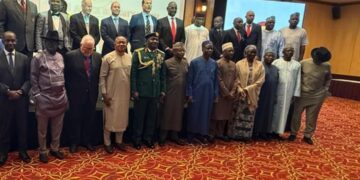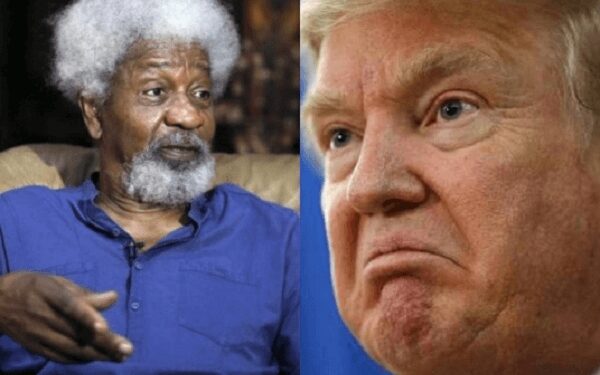The United States government under President Donald Trump has revoked the visa of Nobel laureate and global intellectual icon Professor Wole Soyinka. The Nigerian scholar confirmed the development during a press briefing at Freedom Park Lagos, noting that the U.S. Consulate formally notified him of the decision.
“I have no visa; I am banned, obviously, from the United States,” Soyinka stated, adding that he has no criminal or misdemeanour history that would typically justify such action.
The move comes at a moment when Washington has expanded an AI-powered immigration enforcement system — known as the “Catch & Revoke” initiative — designed to scan and flag foreign nationals’ online speech for potential visa cancellation.
Legal scholars in the United States warn the initiative may trigger arbitrary penalties based on political expression, with the Brennan Center for Justice cautioning that automated surveillance of speech risks eroding constitutional rights and international academic discourse.
Democracy, Speech, and the Algorithmic State
Analysts say Soyinka’s case now stands at the intersection of:
-
Executive-level visa discretion
-
AI-driven monitoring of public commentary
-
Intensifying global geopolitical tensions shaping expression and mobility
The programme reportedly scans social media for perceived support for organisations or views deemed threatening to U.S. policy interests — a framework critics fear could easily misinterpret activism, academic critique, or foreign political commentary.
Implications for Africa’s Security and Academic Communities
For Nigeria and Africa’s strategic community, the development has deeper significance. International defence collaborations, military education exchanges, and diaspora academic engagements could now be influenced by:
-
AI-driven political speech assessment
-
Heightened visa scrutiny for foreign scholars
-
Opaque decision-making in foreign policy enforcement
Given Nigeria’s growing engagement in AI-enabled defence systems, strategic studies, and international training programmes, analysts warn that the global academic and defence mobility landscape may increasingly depend on algorithmic interpretation of speech — not just merit or credentials.
The Bigger Picture
While U.S. authorities have not cited a specific trigger for Soyinka’s visa revocation, the timing raises questions about whether prominent voices, especially from developing nations, could face algorithmic profiling and mobility restriction under emerging national-security frameworks.
For African defence thinkers, policymakers, and students, the case serves as a strategic warning:
In an era where geopolitical competition meets artificial intelligence, freedom of movement — like freedom of speech — may increasingly be moderated by unseen digital systems.








